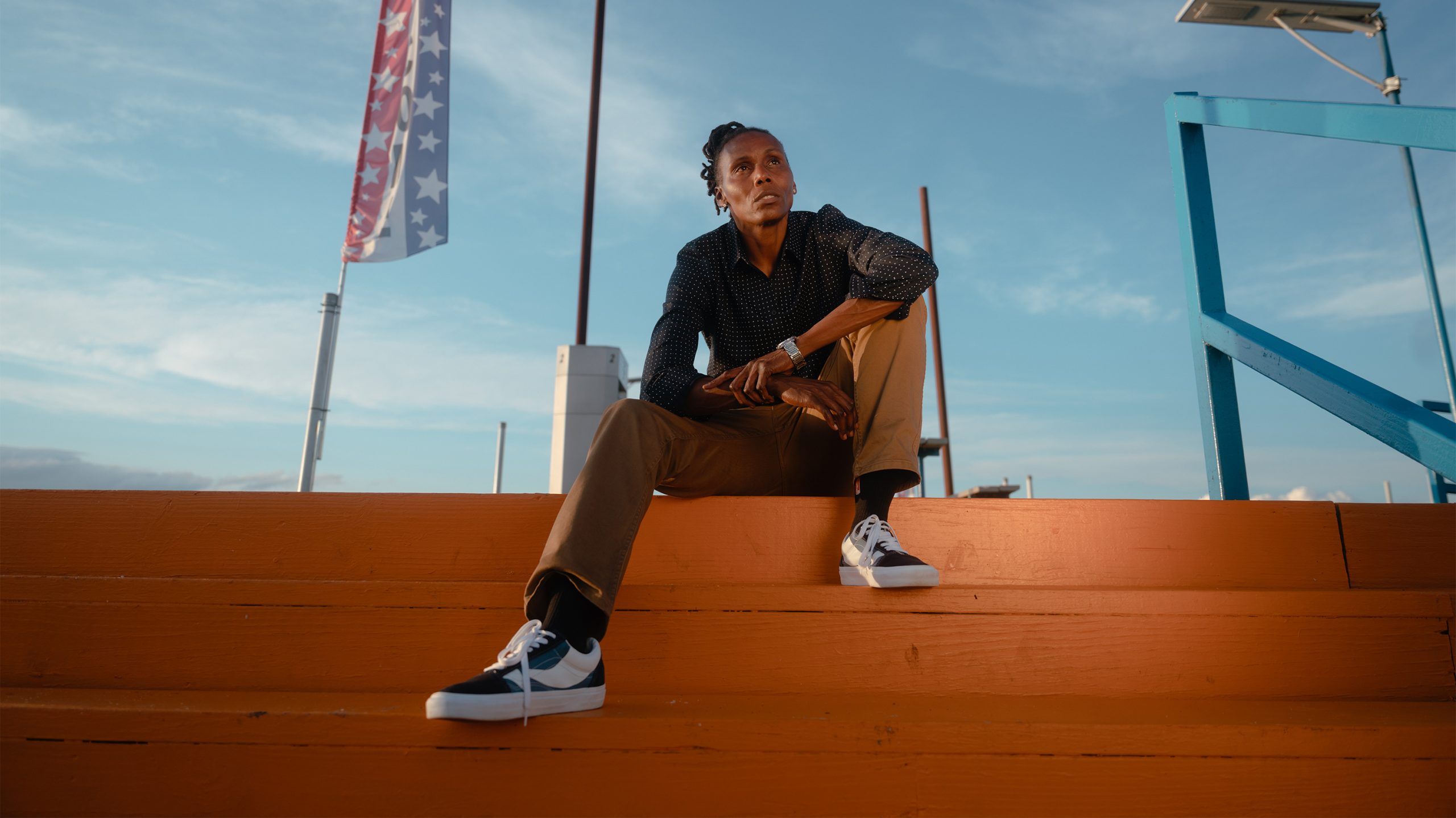At Greatist, we have a message to all the LGBTQIA+ people out there — young and old. We. Love. YOU!
This message is especially dedicated to young people who may be struggling right now, living in nonaffirming homes, or who feel like they are under siege with the current political landscape. We care about you. And we will always do our best to use our platform and voices to support you 100 percent.
In collaboration with The Trevor Project, an organization that focuses on suicide prevention among LGBTQ youth, we recently put a call out to hear from LGBTQIA+ folks.
Our goal was to learn about individual journeys — the stories, the struggles, and the joys. We were overwhelmed with responses from around the country and beyond. Here, we compile five profiles. These amazing individuals share widely different LGBTQIA+ experiences. But they also share several common philosophies.
First, being true to yourself is a source of strength like none other. Second, LGBTQIA+ communities are fiercely loving, strong, and joyful and they’re just waiting to welcome you into their open arms at any time and back you up when needed. Third, you don’t have to have everything figured out right now. And finally, if you are struggling right now, life gets better.
Before we get into the profiles, we have an important message for the world. The research is clear. When we rally around LGBTQIA+ young people, we save lives.
The Trevor Project recently released its National Survey on LGBTQ Youth Mental Health. The survey found that 42 percent of LGBTQ youth considered attempting suicide in the past year. Part of the problem is that only 1 in 3 LGBTQ youth report living in a home that’s LGBTQ-affirming.
An earlier report from The Trevor Project also showed that youth who report having just one accepting adult in their lives were 40 percent less likely to report a suicide attempt in the last year.
That’s right: You, just one person, have the power to make a difference. Let these five people inspire and challenge you to always be that person.
Arend Richard
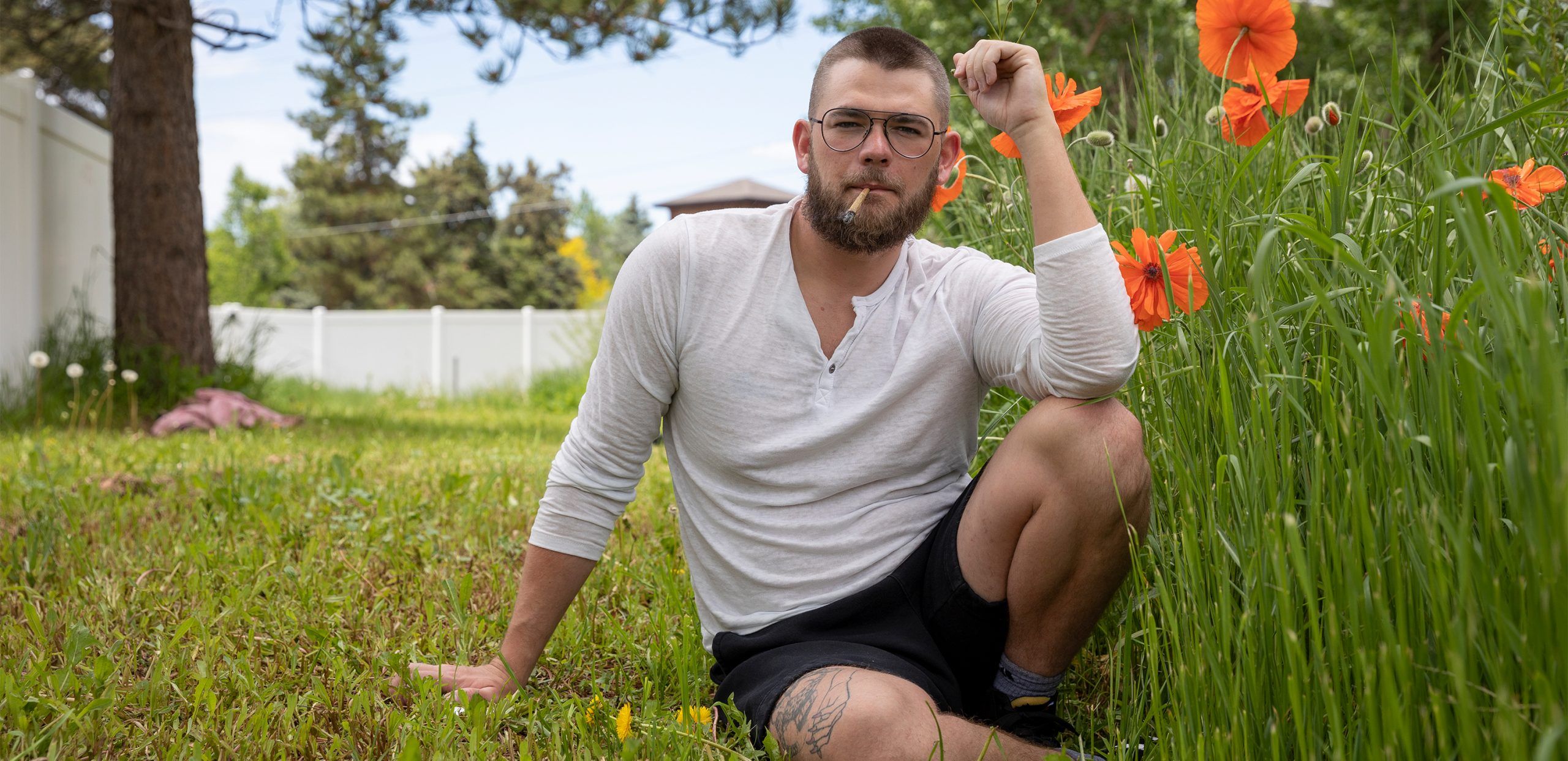
Photography by Elaine Cromie
Arend Richard, co-founder and creative director of TheWeedTube, grew up in a Christian family in Denver, Colorado, surrounded by his older cousins — mostly super athletic males. “And then there was me,” he says. He describes having a flair for interior design and always feeling like the odd one out. And although not perfect, things were OK until an awkward breakfast with his dad at 17 years old.
He was dining out with his dad and a female friend whom Richard had formerly dated in an attempt to appear hetero. The two had remained friends after dating, and Richard had eventually told her he was gay. But he hadn’t yet come out to his dad.
At the breakfast, Richard says, “She made a joke that was like, ‘Oh, my grandma thinks I’m pregnant again.’ And I said, ‘Oh, I hope she doesn’t think it’s mine.’ And she said, ‘Oh no, she knows you’re gay’ right in front of my dad. And it just kind of like shattered the whole illusion in that moment.”
Richard’s dad didn’t say a word about the incident until later when the two were at home. “He just came into my room, and said, ‘If that’s who you are and that’s how you want to live, you can’t live in this house and kicked me out,” Richard recalls.
He spent the next several weeks couch surfing with friends, but his school eventually got wind of the situation, called Richard’s dad in, and threatened to report him. That started a long path of therapy between Richard and his father.
They saw three different Christian-based therapists together over the years. Finally, the third therapist got to the heart of it. “He literally just looked at my dad dead in the face,” Richard recalls, “and said, ‘If you love your son, you’re just going to need to get over it or you’re going to lose him.’ And thank goodness for that guy. It was almost like my dad just needed a Christian respectable figurehead of some sort to tell him, ‘It’s OK to love your son.’”
Richard says the rest of the family on his father’s side does not accept him at all, and he was recently the only person out of the whole family not invited to a cousin’s wedding. “And it hurts,” he says. “Even when you’re put together and successful and you’ve got everything together, that still stings.”
Richard first gained notoriety on YouTube as “The Gay Stoner,” a nickname given to him by his followers. But when the site purged cannabis content in 2018, he and other creators founded TheWeedTube. “I was so thrilled to be someone that I always wanted to see growing up on the internet, whether that was with cannabis or not,” he says. “I still feel like I always try to convey relatable lessons to young queer people about how it will be OK — like it gets better, but this is how and this is why.”
Despite the hurts he’s faced within his family, Richard says he’s found greater love in the circles beyond. “There are people out there who will love you in a way that your family would never even be capable of,” he explains. “And you just gotta wait to find ’em. I feel bad for my family too,” he adds, “because a lot of their relationships are these surface-level relationships that don’t go any deeper. And they almost don’t really know each other at all.”
Ultimately, he says he sees being gay as a blessing or a gift. “When you’re born as a queer person,” he explains, “you’re immediately given access to a different view of the world and of reality that allows you to question things in a way that most people will never even bother to think about.”
Sharky McGee
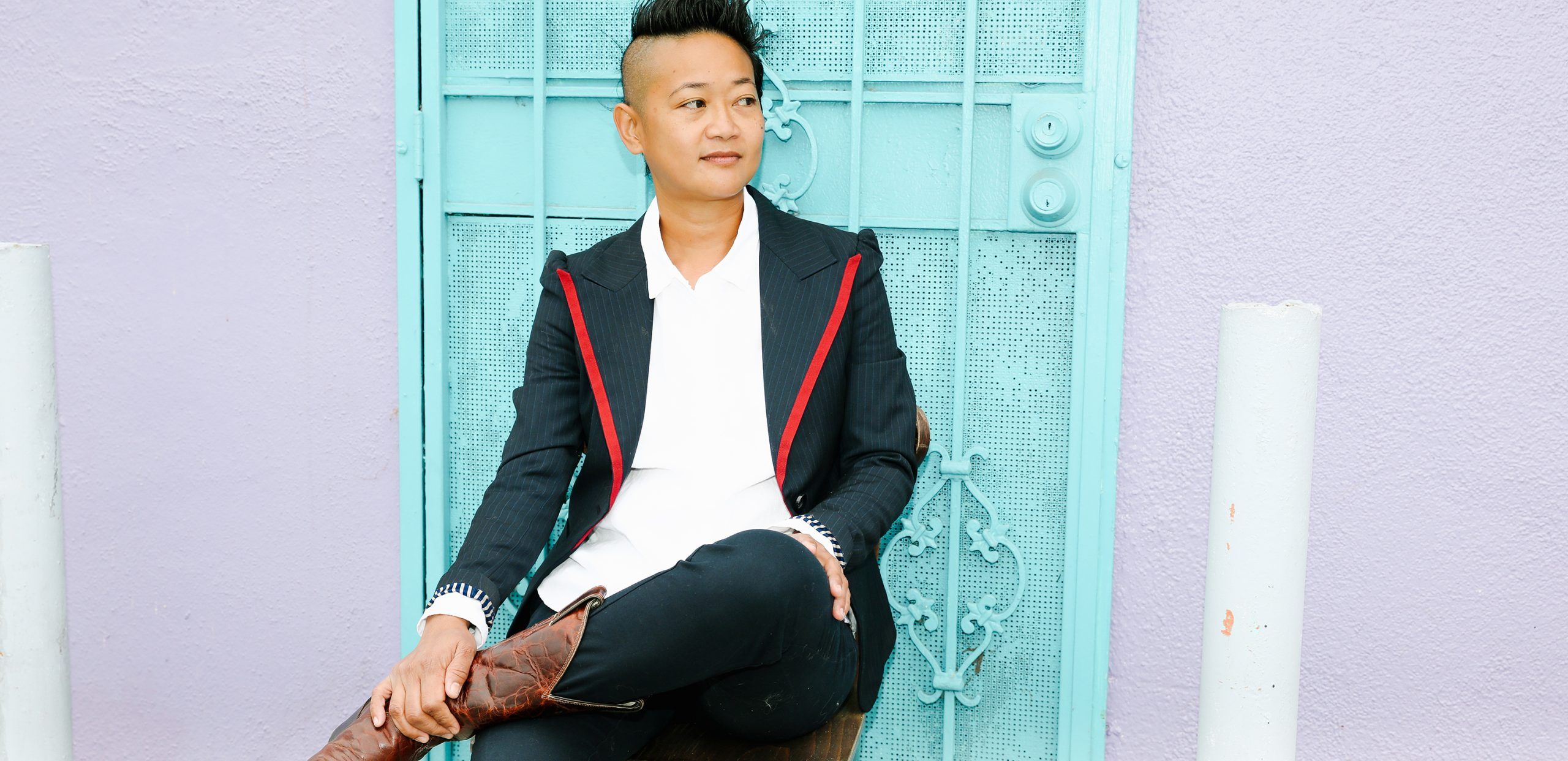
Photography by Naohmi Monroe
Sharky McGee, owner of Jewel, a beloved dairy- and meat-free restaurant in the Silver Lake neighborhood of LA, immigrated to the United States when she was 21 in 2000. Although she says she now identifies as queer, she did not allow herself to entertain the thought when she lived in the Philippines.
“There’s just such a stigma, particularly in a smaller country back then in being gay or homosexual,” she says. “It’s just something that is taboo and is not talked about. Looking back now as an adult, there are definitely moments where I’m like, ‘Oh, that’s such a gay moment’ — like having a crush on your teacher.”
In fifth grade she wrote a letter of adoration to a female teacher, a nun, in her all-girls Catholic school and accidentally left it behind. Another student found the letter and gave it to the teacher. McGee was called in to the guidance counselor’s office and told that what she’d written was inappropriate. “I just wanted to get to know this teacher more,” McGee explains.
Upon coming to the United States she initially had a boyfriend, but a woman initiated an intimate relationship with her. And McGee says she then realized she really enjoyed being with a person of the same sex. “Was there a question that it was a sin?” she says. “Was that lingering in my head? Yes.” But she says the ecstasy of the relationship was strong enough to overcome those questions.
When the relationship ended, she tried dating men again — as well as women. She recalls the last straw with the opposite sex: “I was dating this man — and I’m sorry to be graphic — but we were having sex. And I was like, ‘Why do I have this d**k inside of me?’”
McGee eventually came out to her older sister first. “I was putting pressure on myself to put a label on myself,” she says, “and bisexual was the term that I chose to box myself in. I felt that, for my sister, it was the easiest label to accept and understand.”
Her sister asked her to pray on it. But McGee says she didn’t. “You’re raised with a punishing god — raised under the dogma that who I am is a sin,” she explains. “So I struggled with my religion. In the process of accepting myself or realizing who I am, I realized that in order for me to do so I needed to detach myself from my church — because I cannot change what the church thinks I am. The only thing I can change is my relationship to it.”
McGee says she’s fortunate to be surrounded by a community that supports her, but she says her true feeling of acceptance came from within first. “Brian Sands, an Irish political activist, has a quote that says: ‘Our revenge will be the laughter of our children,’” she says. “So, laugh, live, love. Let others hear you. Let your light shine bright so they see you. Love yourself, and they will love you.”
A.G. Breitenstein
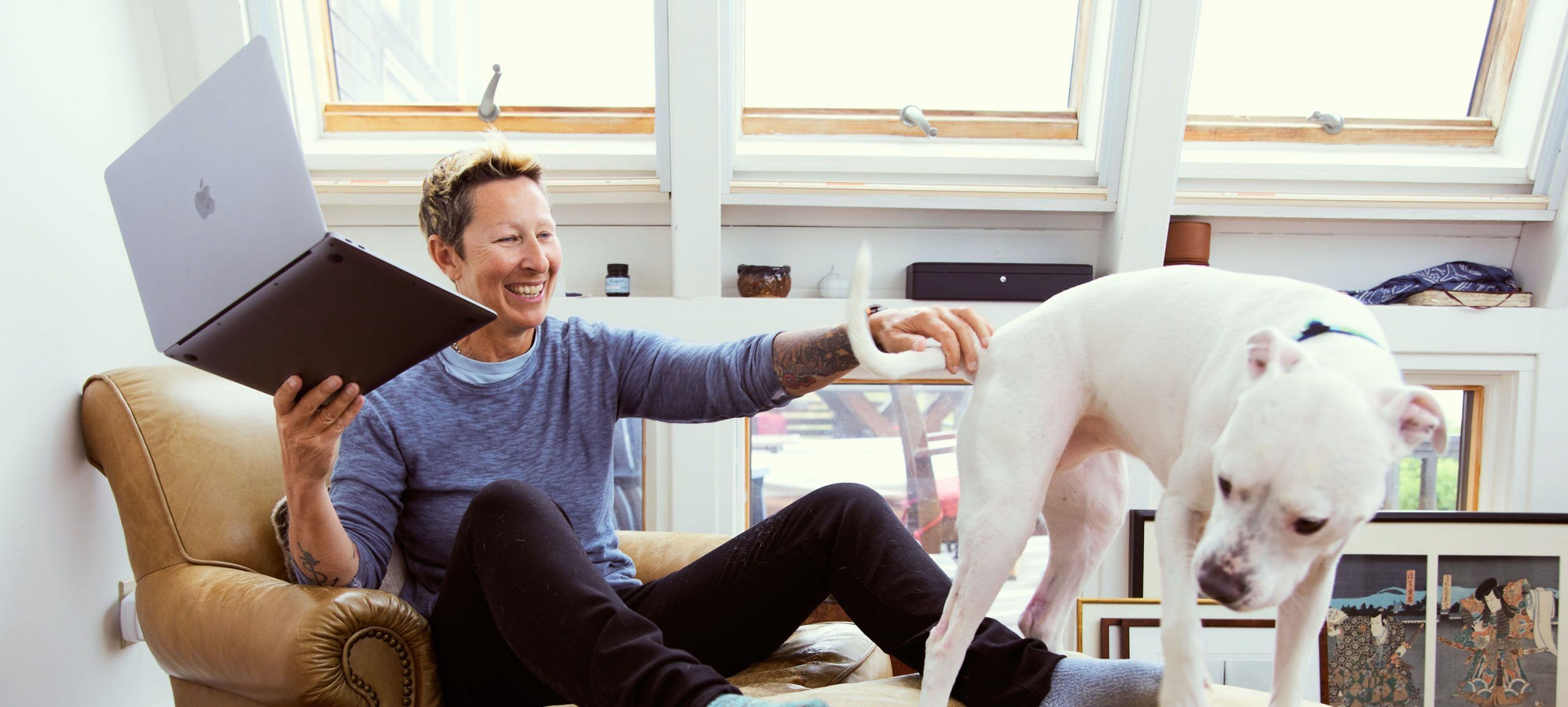
Photography by Ally Schmaling
In 1987 A.G. Breitenstein, now the founder and CEO of FOLX Health, the first healthcare platform by and for the trans and queer community, was a freshman in college. “The AIDS crisis was raging,” she says, “and ‘SILENCE = DEATH’ was very much a thing. The community was definitely in just a really deep period of crisis. And clearly gay men and trans folx were bearing the brunt of that.”
Amidst the AIDS crisis, LGBTQIA+ communities also endured intense stigma. “The communities were under siege at every level,” Breitenstein recalls. “And that mentality was sort of what I came out in.” She came out while she was in college so that she would have a backup place to live — in case she didn’t have a home to return to. But she says her family was amazing. Not everyone was so accepting though.
“I can remember a time, quite frankly,” she says, “when going down Fifth Avenue for Gay Pride was actually physically dangerous for us back then. People were throwing stuff. It was not at all the party that everybody knows it to be today.”
Breitenstein says activism quickly became the focus of her young life. “I went directly from college into law school,” she says, “explicitly with the goal of trying to do civil rights and just rights for this community in a way that would restore dignity.”
A huge challenge that Breitenstein has faced her whole adult life is finding adequate healthcare. “Going to a provider was always like a mild nightmare to a major nightmare,” she explains. She says she was often treated like a “germ” or as if she’d contracted HIV. Other times, providers wanted to educate her how babies were made when she said she didn’t use or need birth control.
She avoids going to the doctor unless she absolutely has to. “Still, to this day,” she says. “I think that reverberates with you.” And she finds that avoidance of primary care to be a common thing in LGBTQIA+ communities.
Breitenstein says one of the biggest healthcare challenges for the community now is finding knowledgeable care for trans folx. “If you’re trans — and particularly a trans person on hormone therapy — people have no idea what to do.” And that’s one of the many reasons why she started FOLX Health, to solve the lack of affirming healthcare out there.
Despite the trying times for LGBTQIA+ communities in which Breitenstein found herself in during her first years as an independent adult, she says those challenges formed a glue that held everyone together. “There was a real sense of still being joyful in each other’s company,” she says, “and just the color and culture, which is just sort of part of who we are, and claiming so much of the darkness and transforming it into light.”
She’s seen that light grow exponentially and filter down through the next generations, and that gives her hope for the future. “Our culture is starting to ask these questions about what it means to be a healthy human being in the world,” she explain, “and understanding that authenticity and really being one’s self is core to that.”
That collective conversation about authenticity is a crucial one Breitenstein is glad people are now having. “I think real resilience comes from that real self-knowledge,” she says, “because then, no matter what comes your way, you’re rooted to yourself. And that’s real strength.”
Finnegan Shepard
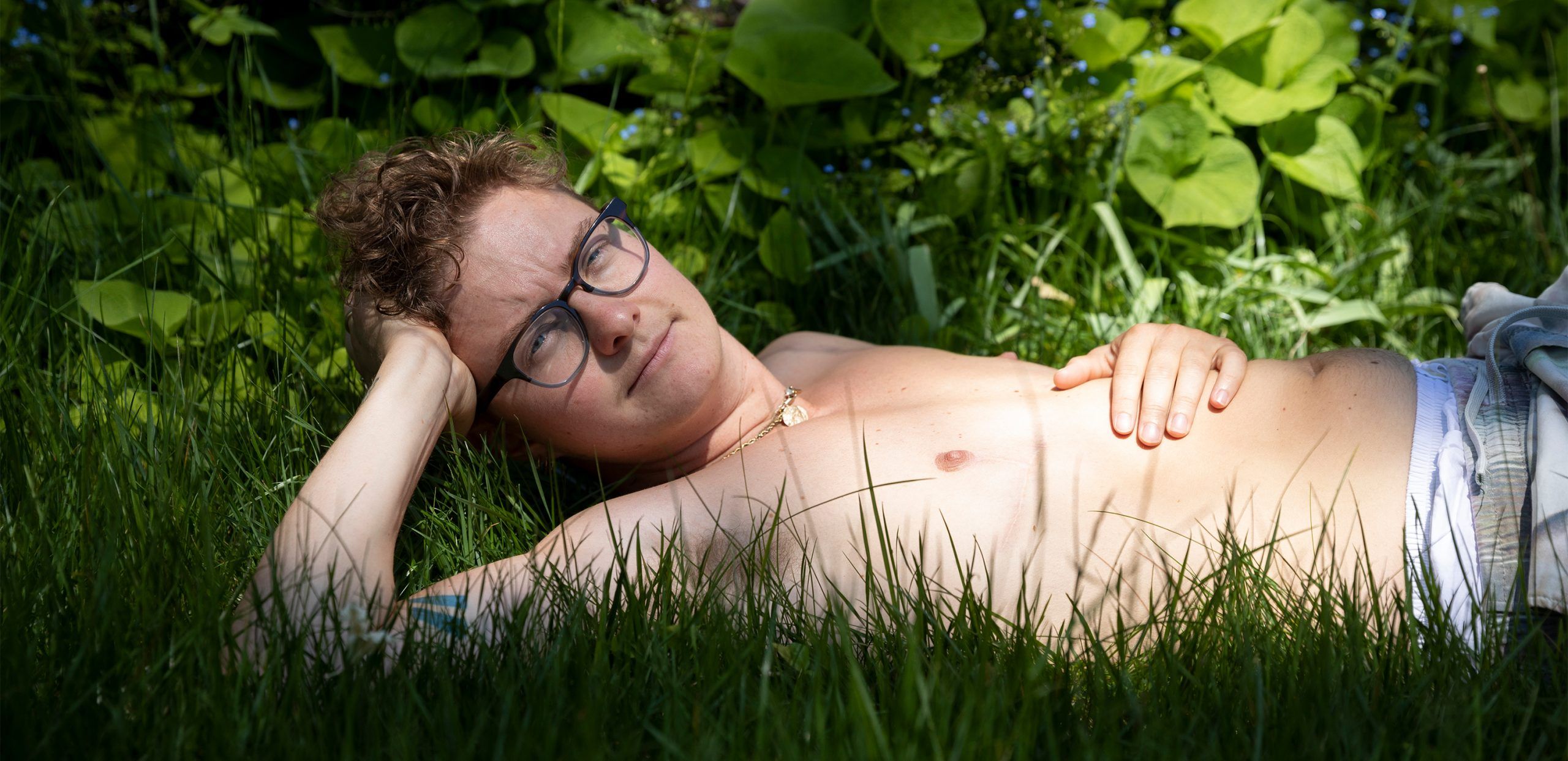
Photography by Elaine Cromie
Finnegan Shepard, founder of Both&, a new apparel company devoted to transmasculine fashion, has one thing to say right out of the gate. “I’m constantly talking to people about how problematic I feel it is that there’s not really a space to talk about joy here,” he explains, “that there’s a very precarious correlation between suffering and being trans — as if it’s like this necessary precondition that defines the entire experience.” He says he’s living proof that’s not true.
Shepard credits his mom, a preschool teacher, for letting him dress the way he wanted early on and for loving and accepting him for who he is. At 4 years old, he told her he wanted a haircut. She asked him to wait a second while she finished a phone call. But he couldn’t wait.
“I grabbed the scissors,” he recalls, “and I ran upstairs, cut off all my hair, threw all my dresses and skirts out the window. She came upstairs, and she stood in my doorway for a really long time looking at me. And she was like, ‘OK, you can wear whatever you want from now on.’”
Shepard says his mom went to bat for him about 6 months later when he was supposed to be a “flower girl,” along with his sister, in his aunt’s wedding. The intended outfits were matching lilac dresses, but Finnegan’s mom said she would not force Finnegan to wear the dress.
Although Shepard says he’s experienced challenges as a trans person, his story is unusual. “I’ve been pretty much unequivocally loved and accepted my entire life,” he explains. “I have never experienced homophobia. I’ve never experienced transphobia. So, hypothetically, let’s run the thought experiment of what it would look like to live in a world in which these things are eradicated. And I am like a case study in what that would look like.”
Shepard only recently started the transitioning process at 27 years old. “When I was a child,” Shepard says, “I completely knew I was a boy. It was almost like this little accident that I happened to be in a girl’s body.” After initially changing his appearance, the notion of gender felt mostly like a side point, he explains — that is until puberty hit.
“It’s kind of hard for me to remember exactly how that felt,” he says, “but that was definitely a very difficult time.” Then, Shepard was diagnosed with type 1 diabetes (T1D) at 14. “It felt like I could not survive being diabetic and transitioning at the same time,” he recalls. “I am a big believer in that we deal with things when we’re ready to.”
So, he held off, almost abstracting himself from gender entirely for many years, he says. Then at 27, he started to socially transition. About 7 months later, he began taking testosterone. Then about 10 months after that, he underwent top surgery in April 2020.
“Unfortunately, our medical system and our societal views are such that trans people, especially young trans people,” Shepard says, “feel as if they have to have 100 percent certainty about this. There can’t be any ambiguity. There can’t be any doubt about transitioning. And that is not true. It’s a scary thing. It’s OK for you to not rush it. It doesn’t make you any less trans.”
After having top surgery, Shepard began shopping for different clothes, and was disappointed in what was available to fit his body. That’s why he started Both&. “Just, you know, the simplicity of putting on a shirt and being like someone designed this for me,” he explained, “like somebody actually cares about my body. For once, it’s being prioritized over other bodies.”
Looking back at his journey, Shepard has a message to transgender youth seeking community online or elsewhere, especially in the trans space. “No matter where you are,” he says, “this community is so openhearted and wanting to sort of cocoon everyone that we can and help them through the process. So, just don’t restrict yourself from reaching out. Don’t feel like a question is naïve or you’re not allowed to ask it. That has never been my experience with this community.”
Crystal Robinson
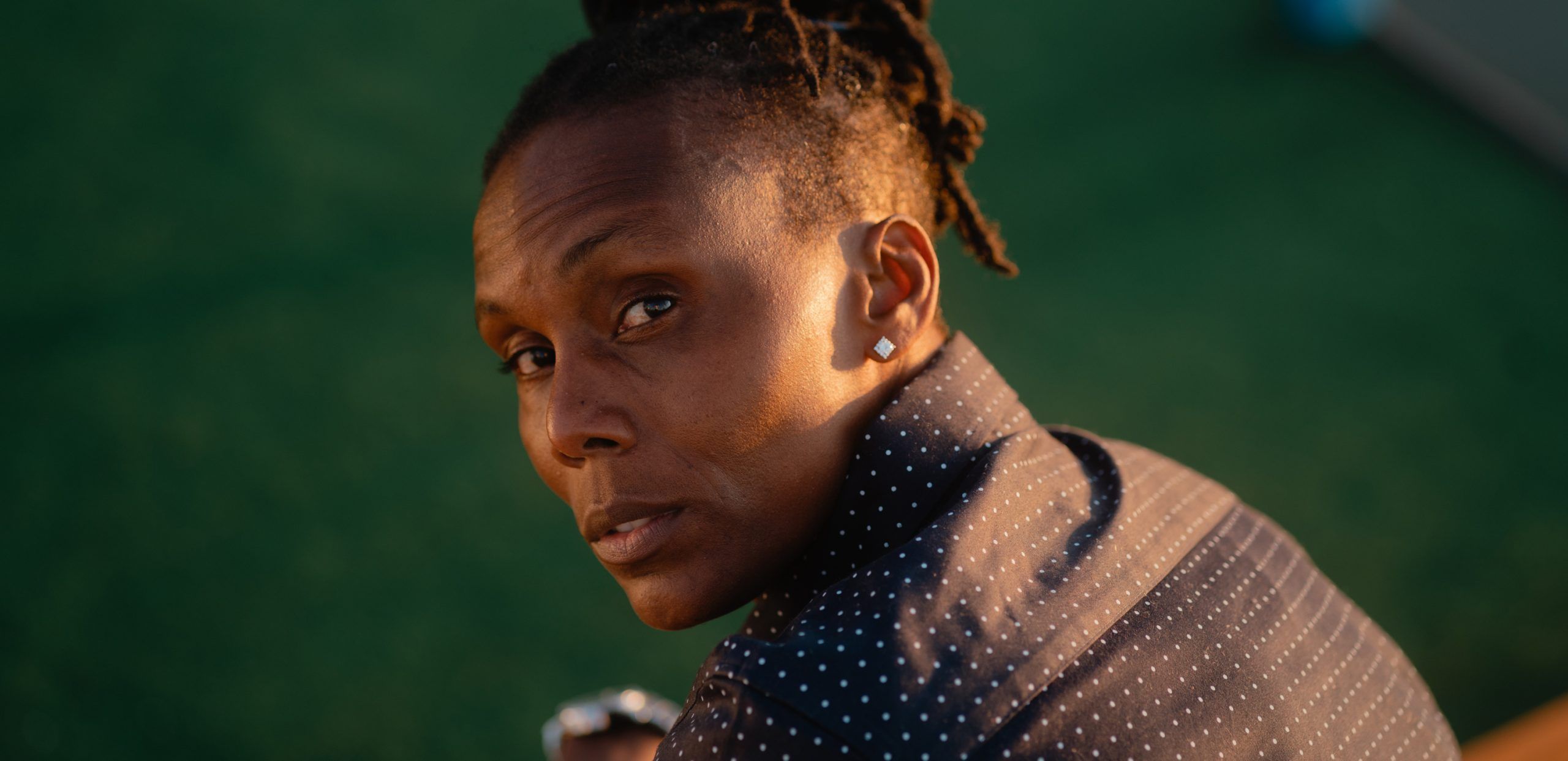
Photography by Zerb Mellish
Crystal Robinson, former WNBA player and coach, and now author of her autobiography “Finding Myself,” came out as a gay in the Bible Belt in Stringtown, Oklahoma. “It’s just one of those situations where everyone knows everybody,” she says, “and everybody pays attention to everybody’s business. So, it definitely was a difficult situation. But I will say that being a good athlete helped me.”
She remembers coming out to her mother. “She was asleep,” Robinson says, “and I whispered in her ear, ‘Mom,’ and she kind of rolled up and looked at me. And I said, ‘I’m gay.’ And she looks up and she says, ‘Girl, I knew that before you did. Now get out my face.’” That was the gist of the conversation, Robinson says.
Ultimately, Robinson didn’t grapple with having to find acceptance from her family. But she did have to find it within herself. “I hated myself,” she says. “I went through suicidal thoughts. My Christianity wouldn’t let me kill myself, but I can remember for a long time I would wake up and pray, ‘God, either let me be like everybody else, or let this be my last day.’”
Robinson says she and one of her best high school friend toyed with death regularly. “We played Russian roulette, we played chicken with trains,” she recalls. But when she was in college, she received a message that her beloved friend had killed himself. The loss sent her reeling and became a turning point for Robinson to forge a path toward self-love.
That was the first time that I started to be like, ‘You know what? Shoot, I got to live my life for me,’” Robinson says. “Anybody who doesn’t like it — they just don’t get to be on the train. Too bad for them.”
Looking back now, she recognizes the thing that prevented her from self-acceptance at first. “I don’t think it’s a god thing,” she says, “I think it’s a religion thing.” She says god is about love. “I definitely consider myself a Christian,” she continues. “I will never let anyone cast Christianity from my title because of my sexuality.”
Self-love is still a journey for her, and she says it always will be a work in progress because that’s how humans are programmed. “The whole day can be great,” Robinson explains, “and 5 bad minutes can mess up all of the good things. And it’s never in reverse.”
She’s witnessed kids face some of the same struggles she has with finding self-acceptance or seeking acceptance from others, and that’s why she chose to write her book. “It’s a gateway in a package to say, ‘Hey, you’re not alone,’ Robinson explains. “I went through some of this stuff, and it was hard. But I made it. You will make it. Just keep going.”
Once she came out as gay, Robinson says, then nobody had anything to whisper about. So, her biggest message to others now is to “stand in your own truth.”
